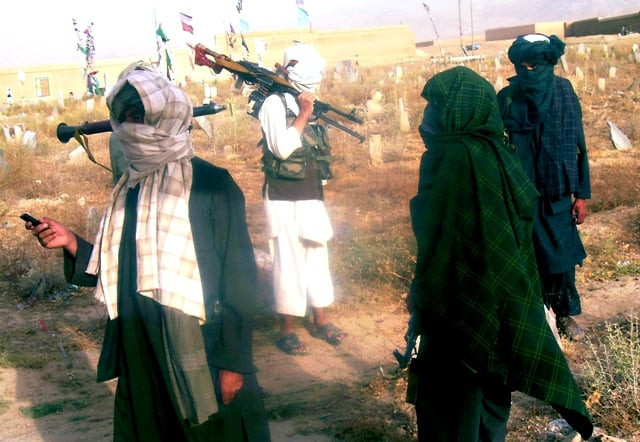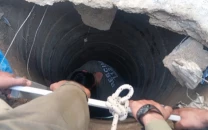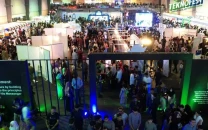Twilight of the Taliban: TTP buckles under internal fissures, external pressure
With chain of commands crumbling and funds dwindling, the militia appears to be in disarray.

The twilight of the Tehreek-i-Taliban Pakistan (TTP) – an outlawed umbrella of militant groups – appears to have set in.
The group responsible for most violence in the country is in disarray with its ‘chain of command’ crumbling, funds dwindling and infighting intensifying, admit Taliban foot soldiers.
“It appears the TTP’s days are numbered … what was a well-coordinated militia just a year ago has fragmented now and dozens of splinters groups have emerged,” a disgruntled member of the network told The Express Tribune.
At least two associates of the group in South Waziristan, the strongest bastion of TTP where its chief Hakimullah Mehsud is hiding, also confirmed this.
They said Mehsud has further isolated himself due to threats to his life from the dreaded American drones and Pakistani spy agencies.
“He is virtually a lonely man running for his life … he is always on the move and doesn’t meet even his once most-trusted lieutenants,” said Muhammad, a nom de guerre because the militants seldom use their real names.
Muhammad, who lives in the North Waziristan tribal region, was in Islamabad for the treatment of some kidney ailment at a private clinic. Mehsud has stopped meeting members of his notorious network from Punjab, better known as Punjabi Taliban, suspecting that some of them might be spying on him for Pakistani agencies.
“This is one of the reasons for relative peace in the country … there is no coordination among various groups of the Taliban,” said an intelligence official. There has been a visible decline in the Taliban violence in the country over the past few months.
The TTP associates said that their group was crumbling due to differences on the question of pursuing peace talks with the government — an option Mehsud had rejected outright when he was first approached with the offer.
One the other hand, several key TTP leaders have responded positively to peace overtures from the Pakistani agencies. TTP’s deputy chief in South Waziristan Mufti Waliur Rehman and the group’s No 2, Maulvi Faqir Muhammad from Bajaur Agency, are reportedly in talks with the government, indirectly though. Officially, both the government and the TTP deny peace talks.
Muhammad claimed that several members of the TTP shura, or decision-making council, have also showed willingness for talks. He added that the shura, which once had around three dozen senior leaders, has now shrunk to less than 10.
“People are now deserting Mehsud and joining the group led by Waliur Rehman,” he said, adding that the latter’s group is becoming more powerful.
No more money
Apart from differences within, supply of foot soldiers to the TTP is also drying up fast, said Muhammad who himself has given up violence to start a small business in his village.
“They (foot soldiers) are deserting because it no longer earns them money,” said Raqeebullah Mehsud, a former TTP field commander.
Intelligence officials are claiming the credit for the TTP’s imminent collapse, saying it was their squeeze that had played a key role in blocking funds supply to the Taliban. But experts like Brigadier (Retd) Muhammad Saad believe that TTP’s inability to generate money might be the result of what has been happening behind closed doors in Afghanistan in the recent past.
“There have been reports that the Afghan Taliban are actively engaged in peace talks,” he added.
Saad said that the war in Afghanistan was the main source of funds for the TTP “but it may not be the case anymore”.
But Brigadier (Retd) Mehmood Shah, another security analyst based in Peshawar, said it won’t be fair to deny the Pakistani agencies credit for the isolation and subsequent rupture in the ranks of the TTP.
“Much of this happened due to their (Pakistani agencies) maneuvers,” he said.
Published in The Express Tribune, December 19th, 2011.
Correction: Due to an editing error, an earlier version of the story mentioned Baitullah Mehsud as the current TTP chief. The current chief is Hakimullah Mehsud.



















COMMENTS
Comments are moderated and generally will be posted if they are on-topic and not abusive.
For more information, please see our Comments FAQ